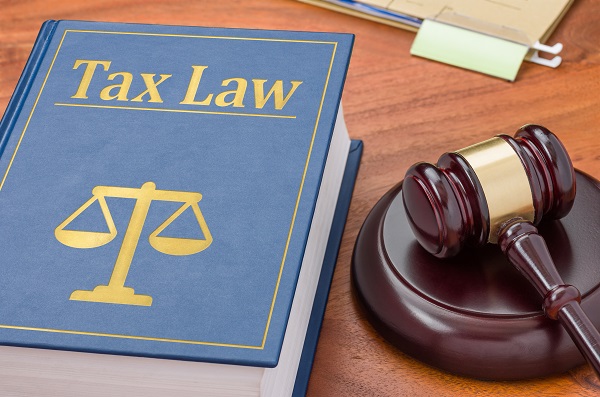The State of Texas authorizes counties to assess and collect property tax on most real property and some types of personal property, such as automobiles and boats, located within the county. Property tax is generally due by January 31st of each year and based on the assessed value of the property from the prior year.
Property owners that cannot pay their property tax face a variety of potential consequences ranging from the taxing authority placing a lien on their property to the property being foreclosed and sold to satisfy the debt.
But falling behind on property taxes does not by any means guarantee losing your property. Rather, among several options, a well-structured property tax loan can help property owners satisfy their tax obligation as part of a broader strategy for achieving financial success.
How does a property tax loan work?
According to the Texas Office of Consumer Credit Commissioner, “A property tax lender is a person who engages in the business of making, transacting, or negotiating property tax loans.” In other words, property tax loans are loans that property owners take out to help them pay current or past-due property taxes when they cannot pay their property tax themselves.
A property tax loan is a financial product very similar to other types of personal loans. When a property owner lacks the cash to fully satisfy their tax obligation and either cannot liquify or desires to not liquify other assets in order to free up the necessary cash, a property tax lender will step in to loan the money necessary to pay the tax.
As with other types of secured credit, the lender will then place a lien on the property. But, in general, a lien is a third-party interest in a piece of property that vests the third party (called the “lienholder”) with certain rights with respect to the property. Most notably, a lien allows the lienholder to foreclose on the property, essentially forcing a sale to satisfy the debt.
Thus, boiled down, property tax loans work like this: The property owner borrows money from a lender; the owner then uses that money to pay his or her property tax; and the lender places a lien on the property. Once the owner repays the loan in full, the lien is removed and the parties’ business relationship concludes. In some instances, property owners must petition the local court to remove the lien, and in other cases the lender will take care of unencumbering the property.
What does a property tax loan look like?
Property tax loans come in a variety of styles and options. Because every borrower’s financial situation is different, any competent property tax lender should strive to create a financial product that best serves the individual borrower’s needs. Still, all property tax loans share a few common characteristics.
First, while many property tax lenders do not charge application fees or other up-front costs when applying for a loan, most lenders charge what is referred to in the industry as an “origination fee.” An origination fee is an additional fee that lenders collect to help them cover overhead expenses associated with generating, underwriting, and issuing the loan in the first place. But precisely because lenders charge origination fees to cover overhead expenses, not to make a profit, borrowers should approach lenders that charge high origination fees with some skepticism.
While in theory a lender could charge a flat origination fee, it is common practice for lenders to structure the origination fee in terms of a percentage of the total loan amount. Thus, larger loans are more expensive in this respect.
Second, your property tax loan will, of course, carry an interest rate. Interest is the premium that borrowers pay for the privilege of using borrowed money. And from the lender’s perspective, interest compensates the lender for both the time-value of money and the risk inherent in lending money.
Property tax loans are a type of secured credit, meaning the borrower puts up collateral to guarantee the loan in case he or she defaults on the payments. But for this reason, the interest rate on a property tax loan is typically much lower than the rate property owners would pay if they, for example, used a credit card to make their tax payment.
Interest rates vary from borrower to borrower based on a variety of factors. Notable factors that influence every borrower’s interest rate, however, include the property’s value, its location, and the borrower’s credit history. It also bears noting that below-average credit does not necessarily disqualify a borrower in the eyes of many lenders. A less-than-stellar credit history, therefore, should not discourage you from seeking out a property tax loan.
Third, as we mentioned briefly above, taking out a property tax loan will authorize the lender to place a lien on the property. Technically speaking, if a property owner already owes overdue taxes, the local taxing authority has likely already placed a lien on the property. In that case, the lien simply transfers from the taxing authority to the lender. But in cases where taxes are not yet overdue, the lender will place a lien on the property itself.
How long does it take to get a property tax loan?
In this day and age, applying for and receiving a property tax loan is simple and straightforward. Potential borrowers will almost categorically begin by applying for their loan online. A professional loan officer will then typically call the borrower on the phone to gather the rest of the information that the lender needs to determine whether the borrower is eligible and what terms it can offer.
Loans made to pay taxes on non-homesteaded property can sometimes close in as little as one day. The law requires a three-day waiting period between approval and closing for loans made to pay taxes on homesteaded properties. But in any event closing typically takes place about a week after approval, and in many cases sooner.
Where do I go to get a property tax loan?
Property owners have a variety of lending options at their disposal. Many lenders operate entirely online, while others maintain physical locations as well.
Here at PropertyTaxLoanPros.com, our lending professionals are eager help craft a plan that works for you and your unique situation. So, if you own property in Texas and are struggling to pay your property tax, we encourage you to reach out to us to see how we may be able to help. You can reach us by phone at 866-531-7678 or by email at info@propertytaxloanpros.com.



